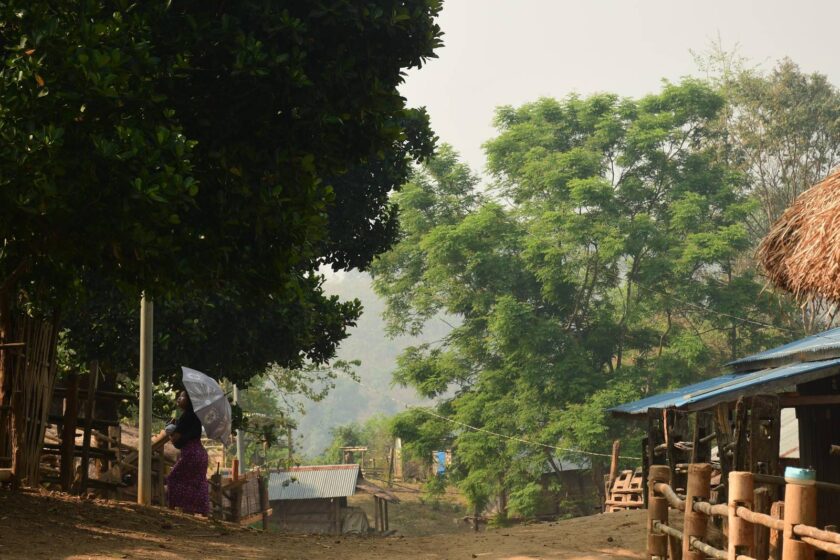
Maw Oo Myar / Kantarawaddy Times
In these challenging times, many Karenni mothers are worried about adding a new family member to their household. It’s an unpleasant reality. When life becomes increasingly unstable, especially in terms of safety, food, and shelter, a new family member can often feel more like a burden.
For most families, welcoming a new member used to be a moment of pride and joy. But now, that has turned into worry and stress. This is especially true for women who have been displaced by war or disaster and are unable to settle in one place with security and stability.
Nway, a woman in her 30s, is married and longs to have a child. However, the thought of expanding her family now fills her with worry. She fears she won’t be able to provide for the baby’s basic needs, such as food, healthcare, and financial stability during this difficult time.
“As soon as I think about the possibility of a new member, I worry: Will we be able to provide food, clothing, healthcare, and financial support? The first thing that comes to mind is the increasing responsibility. Then there’s the added concern about safety, education, and all the other needs. Moreover, we also have to reassess our current capacity and family situation before making such a big decision,” Nway shared about her anxiety.
But that’s not all. Nway is also worried that her child could become stateless. She has witnessed in her surroundings how some parents abandon their responsibilities, leaving children without care or support.
When mothers consider the costs, the food and clothing, the safety, and the future of their unborn children, they find themselves suppressing their longing for a child, especially families with no stable income.
In normal circumstances, a new family member should bring immense joy. But now, fear and concern dominate. Some Karenni families have even had to abandon their children due to the overwhelming difficulties.
Poe, a 25-year-old woman, is currently pregnant with her second child and is due to give birth in May. Though she lives in a liberated area, rising prices and her lack of income make her deeply concerned for her baby’s future.
Still, she said she would do her best for her child. Despite facing many hardships, including insecurity, her pregnancy is filled with mixed emotions, joy intertwined with worry.
“If healthcare and medicine were available, if midwives were supportive, maybe more women would feel ready to have children. But instead, many are hesitant or avoiding it altogether. People even emphasize that the political situation is bad, and why you still want children,” said Poe.
Currently, in her area, contraceptives are limited, and priority is given only to postpartum mothers. As a result, many women end up with unintended pregnancies in these uncertain times.

Only women who have undergone permanent birth control procedures can feel some peace of mind, said Poe, explaining the reality faced by many married women in her community.
Poe lives in a village in Somo Preh Soe Leh (Shardaw) Township.
“If there’s not enough access to contraceptives, what can people do? If they get pregnant unintentionally, it’s the children who will suffer. We don’t have enough birth control or emergency pills. We only have some daily pills. We recently got a one-month injectable. As for the implants, only a few people have received them. There are no arm implants available yet, but if we had them, we could provide them,” a local healthcare worker explained.
Since Myanmar is a developing country, the monthly cost of basic needs ranges from 300,000 to 600,000 kyats. This varies depending on whether one lives in rural or urban areas. As inflation continues to rise, so do living costs.




